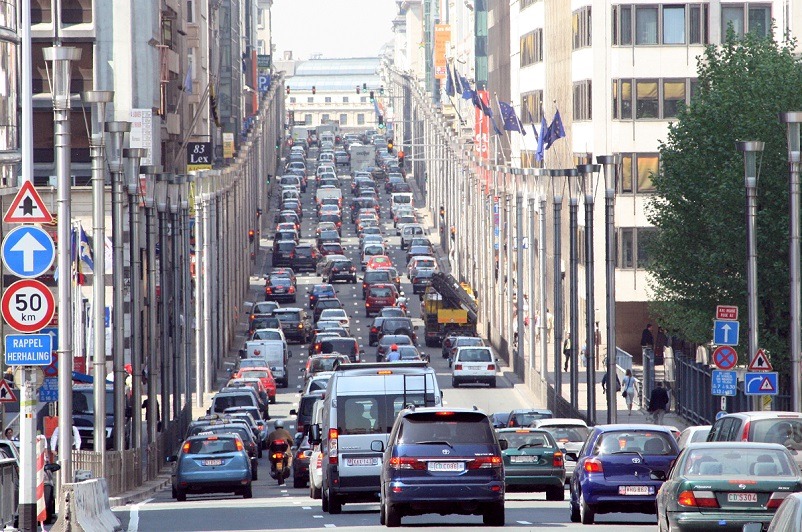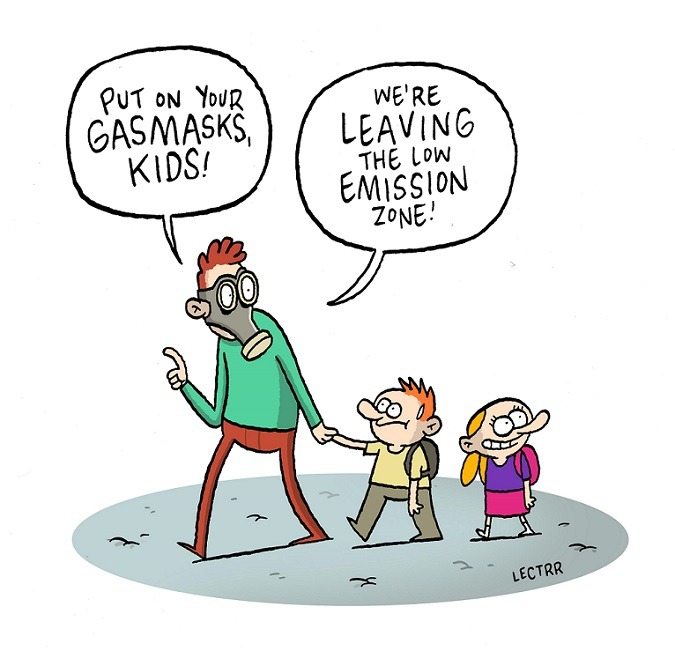There are some 74 vehicles for sale at Super Car, a used car dealer in Auderghem, in the south east of Brussels. Of these, 52 have diesel engines, and just 22 are petrol. However, that number is shifting. “It used to be 90-95% diesel, but now we are finding that it is falling,” says Julien Legrand, a salesman at Super Car. “I expect it to be 60% petrol and 40% diesel soon.”
This change is reflected across Europe, where diesel is falling out of favour. But it is particularly significant in Belgium, where diesel has traditionally dominated the car market. And it has profound implications for carmaking, for consumers and for the environment.
The main driver of this switch is “Dieselgate", the name given to the scandal that erupted two years ago when Volkswagen was found to have cheated in its diesel emissions tests. Using crafty technologies, VW hid that its real emissions of poisonous nitrogen oxides (NOx) were up to 40 times more than allowed. The scandal created a wave of hostility towards diesel engines, which had for decades been favoured as less polluting than petrol, at least when it came to greenhouse gases.
There are other drivers of change too. As the European Union strives to meet its emission cutting targets - first under the Kyoto Climate Change Treaty and now under the 2015 Paris Agreement - it has pushed carmakers to produce cleaner vehicles. Until recently, there were few alternatives to the combustion engine. That is no longer the case. Toyota’s Prius and Tesla have shown that electric vehicles can compete with the best of the carmaking establishment. Now most carmakers are planning major electric vehicle rollouts over the next few years.
This has emboldened authorities to go further in incentivising switches. Electric mobility is regularly cited as the most effective way to tackle health-damaging air pollution, meet climate objectives and sustain industrial competitiveness. Britain, France, and the Netherlands have all announced bans on diesel vehicles by 2040.
Belgium has been slower to act. It is only gradually revising its long-established fiscal support for diesel cars and fuel. And there is still no indication whether there will be any change to the tax benefits of offering company cars – a provision that has been criticised by both the European Commission and the OECD.
But below the national government, the country’s two biggest cities have already stepped up. Antwerp was first, introducing a Low Emission Zone (LEZ) in February. Cameras around the city centre checked all cars entering the zone, and €125 fines were slapped on drivers that failed to meet standards: Euro 1 (1992) for petrol and Euro 3 (2001) with particle filter for diesel. In its first six months, some 56,000 fines were imposed.
Brussels will follow in January with a ban on diesel cars over 20 years old. Ninety smart cameras are being installed across the capital to enforce the LEZ, and the fines are €350 – although there is an initial nine-month grace period when they will not be imposed.
The first vehicles to be banned from Brussels will be pre-1997 diesels covered by the Euro 0 and Euro 1 standards. The restrictions will get tighter gradually: pre-2001 diesels (Euro 2) will be banned in 2019; pre-2006 (Euro 3) in 2020; pre-2011 (Euro 4) in 2022; and pre-2015 (Euro 5) in 2025.
For petrol cars, the Brussels LEZ is more relaxed: it only kicks it in 2019, and for pre-1992 cars (Euro1). The next step is 2025, when pre-1997 (Euro 2) petrol cars are banned.
The shift is already happening, and not just in the second-hand market. In July, the Belgian Automobile Federation, FEBIAC, said more petrol than diesel cars were being sold in Belgium, for the first time in 20 years. Next year, the gap between petrol and diesel prices at filling stations will close from €0.09/litre to €0.01 or €0.02.

Antwerp was the first city in Belgium to introduce a low emissions zone. Now Brussels is introducing it as well, banning diesel cars over 20 years old. Smart cameras will be installed throughout the city and the fines will be €350 for any driver breaking the rule.
But electric and hybrid vehicles still fail to make much impression on business users in need of long-distance range, according to FEBIAC President Philippe Dehennin. “These motorists continue to buy, alternatively lease diesels. What has changed is that a percentage of private users has shifted back to petrol or gone hybrid or electric,” he says,
Dehennin welcomes the shift towards cleaner cars, but worries that diesel is being ditched too soon. “Diesel vehicles still stand out as most economical and least carbon-emitting personal long-distance transport,” he says. “People – particularly Belgians – require diesel and love cars.”
He also warns that the different LEZs could have different criteria. “This would be a nightmare for the motorist.” he says. “Cities should be encouraged by the EU to collect and record health-related data in the same way, set targets in the same way and not focus on only one source of air pollution but on every single source.”
This ties in with plans by the European Commission for stronger EU coordination on mobility issues. It wants EU-wide electric car quotas, as it aims to phase out both petrol and diesel, and shift towards cleaner, smarter mobility.
An EU-wide push to EVs, including plug-in hybrids, would also serve other strategic aims. It would help boost the competitiveness of the European car industry, which has been slow to adapt to low or zero emissions technologies, and is still reeling from the scandal over faked diesel emission tests that erupted two years ago.
Environmental campaigners Greenpeace says the switch should be made in the next two years: it says all diesel cars should be banned from cities by 2020, and it wants cities and communes in Belgium to put the diesel ban on the agenda of next year’s municipal elections. But Belgium is starting at a low level: a mere 2,000 electric cars were sold last year.
Europe and Belgium should still move faster, according to Julia Poliscanova, a clean vehicles manager at Transport & Environment (T&E), a Brussels-based lobby pushing for low-carbon transport systems. “In Belgium, there are problems with the tax regimes, so it is cheaper at the pump. There is also a problem with company cars, and most of them are diesel cars,” Poliscanova says.
But she sympathises with many drivers who now find their cars will soon be illegal. “It is not the fault of the drivers, but of the manufacturers. And manufacturers are not doing enough; they are trying to brush this under the carpet. So are governments. Yes, it is painful for citizens. But the issue has to be addressed,” Poliscanova says.
By Leo Cendrowicz

